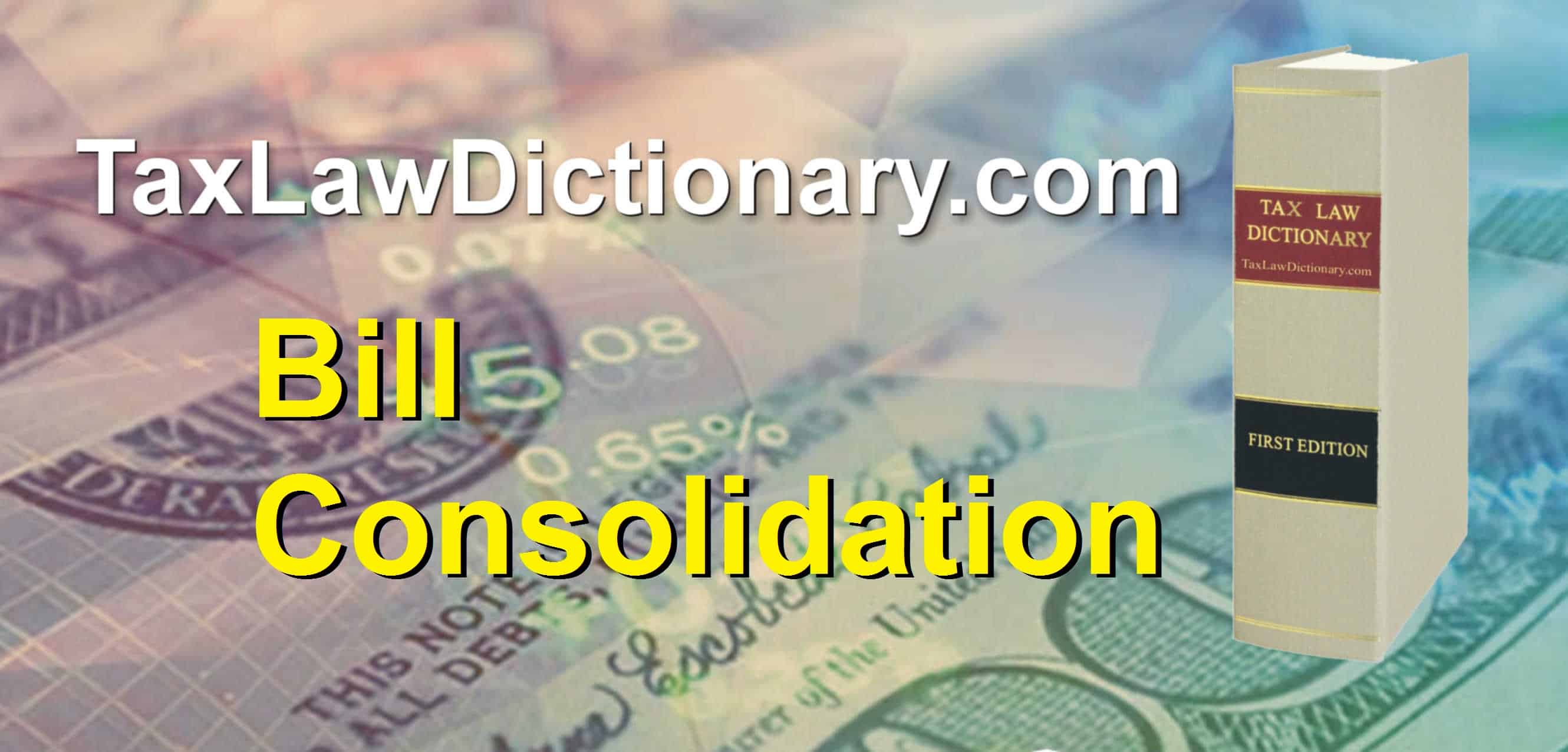 Tax Law Term “Bill Consolidation“
Tax Law Term “Bill Consolidation“
The act or process of uniting outstanding debt by extinguishing the existing loans and creating a single new debt. In general, debt consolidation is a nontaxable event. A consolidated bill replacing multiple creditors with a single creditor may often be secured on more favorable terms than existing debt, thereby reducing debt service payments and interest expense.
Outside of your monthly expense and necessity purchases, you probably have a slew of bills that come every month for credit cards, loans, and other debt. Your interest rates might be very high, or your monthly payment might be beyond your means. One way to deal with debt, make life less complicated and save money is to consolidate your bills. Bills.com
With a bill consolidation loan, you approach a lender for a secured or unsecured personal loan equal to the total amount of your credit card debt. The lender runs the numbers and, if it decides that you’re a good investment, it will approve you for the loan. National Debt Relief
Bill consolidation can help you meet your financial goals and can simplify your financial life by changing several payments into only one or two. By combining multiple bills (e.g. bundling your cell phone, internet and television) you’ll save time from fewer monthly payments and benefit from fewer due dates to remember. In some cases consolidation of your loans or other debt can also help you chart a path to greater financial health by reducing effective interest rates or by renegotiating your payment terms. wikiHow
Browse topics related to ‘Bill Consolidation’
- Bill Consolidation Meaning
- Debt Consolidation Calculator
- Debt Consolidation Loan Rates
- Debt Consolidation Loan Chase
- How Does Debt Consolidation Work
- Unsecured Debt Consolidation Loan
- Debt Consolidation Loans for Bad Credit
